Climate Forum Readings
In the context of ‘The Climate Forum’, a series of online events hosted by HDK-Valand as part of Museum of the Commons (2023–2027), L’Internationale Online publishes two texts by Marwa Arsanios and Munem Wasif that appear in Climate: Our Right To Breathe (K Verlag and L’Internationale, 2022). Here, Nkule Mabaso, co-convenor of the first Climate Forum and one of the editors of Climate introduces the texts by way of three anecdotes.
The following anecdotes are organised around the seeds and the colour in order to draw to one’s mind the connections between feminist politics, land struggles, ethnobotany and sustained, embodied archival engagements that present pluralities of resistance to dominant economic and social systems. From Zayaan Khan’s contemplations on land, seed and food as a means of understanding the world, and Munem Wasif’s juxtaposition of archival plant images and Prussian blue cyanotypes of rice seeds that poethically speak of the degradation of indigenous agricultural practises by colonialism and its continuities through colonialist-capitalist legacies of monocultural production, to Marwa Arsanios on the politics of seed collections and preservation.
Anecdote 1
The creole seeds are beings with nonlegal status; the seed guardian is an undesired being with a legal status. She knows that the beings with nonlegal status are her only allies. In this desertic territory, there is a real water scarcity: the little water there is, is either sucked by the hydroelectric mechanism already in place or the one in the process of being built, then diverted through a government-built irrigation system to endless hectares of rice plantations.
Marwa Arsanios1
Anecdote 2
[undated notes]
In the leather bag the following items are contained:
- 2 Skirts, 1 brown, 1 check
- 1 navy twin set (new)
- 1 winter night dress
- 1 winter pyjamas
- 2 winder panties
- 1 blue dress
- 1 yellow jersey
The leather bags were given to the security branch on the 16 May 1969 and given to me on the 06 of May 1970 upon my admission to hospital.
[signed] W. Mandela2
Anecdote 3
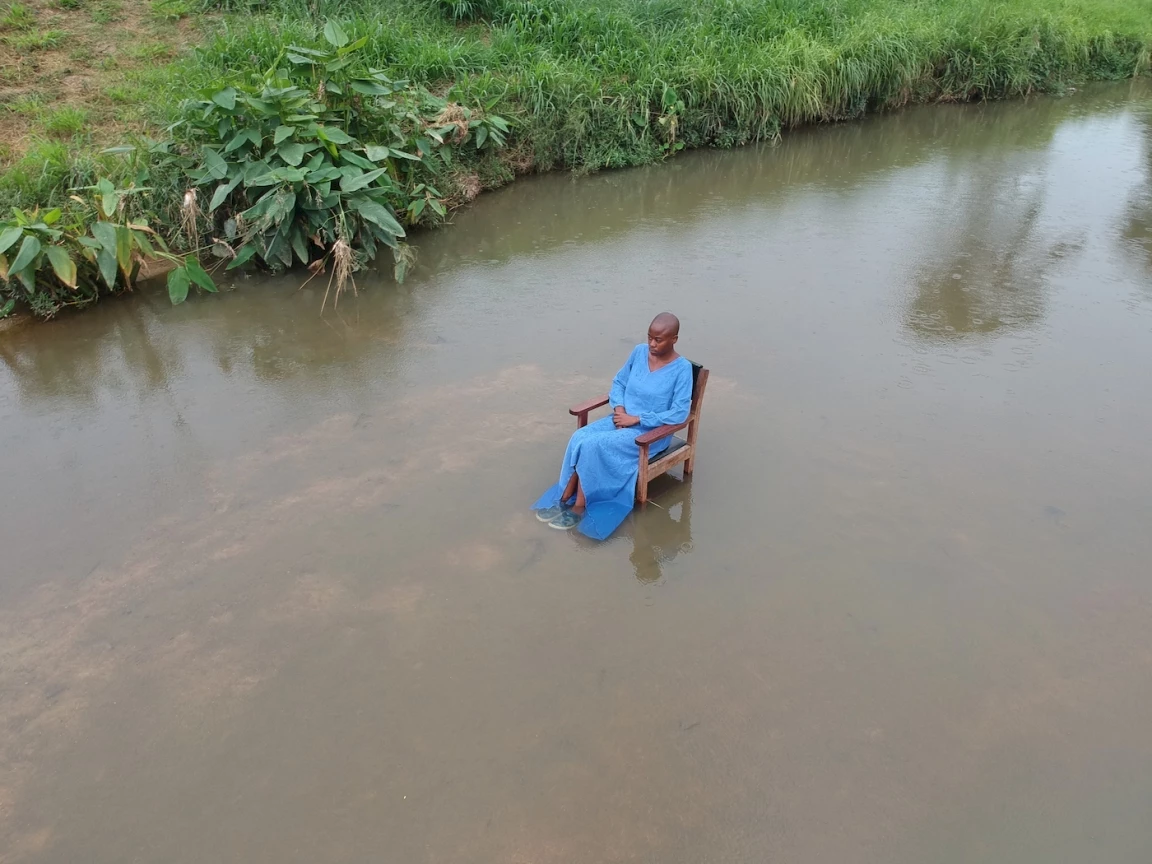
Kasangati Godelive Kabena, Made 5, 2022. Photo: Justice Amoh. Image courtesy of the artist.
In the performance gesture titled Made 5 Kisangati sits is a blue dress, on a chair in the middle of a river at the Kwame Nkrumah University, Kumasi, Ghana.
Climate Forum Readings
Marwa Arsanios, ‘A Letter Inside a Letter: How Labor Appears and Disappears’, 2022
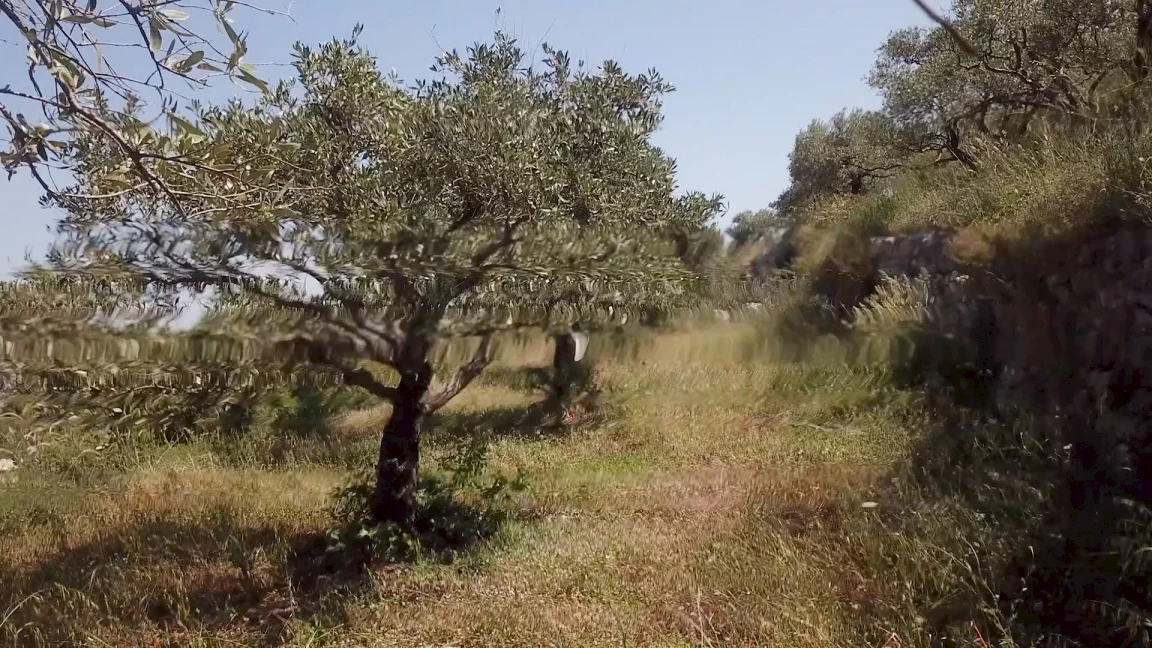
Marwa Arsanios, still from Who Is Afraid of Ideology? Part IV – Reverse Shot, 2022. Image courtesy of the artist.
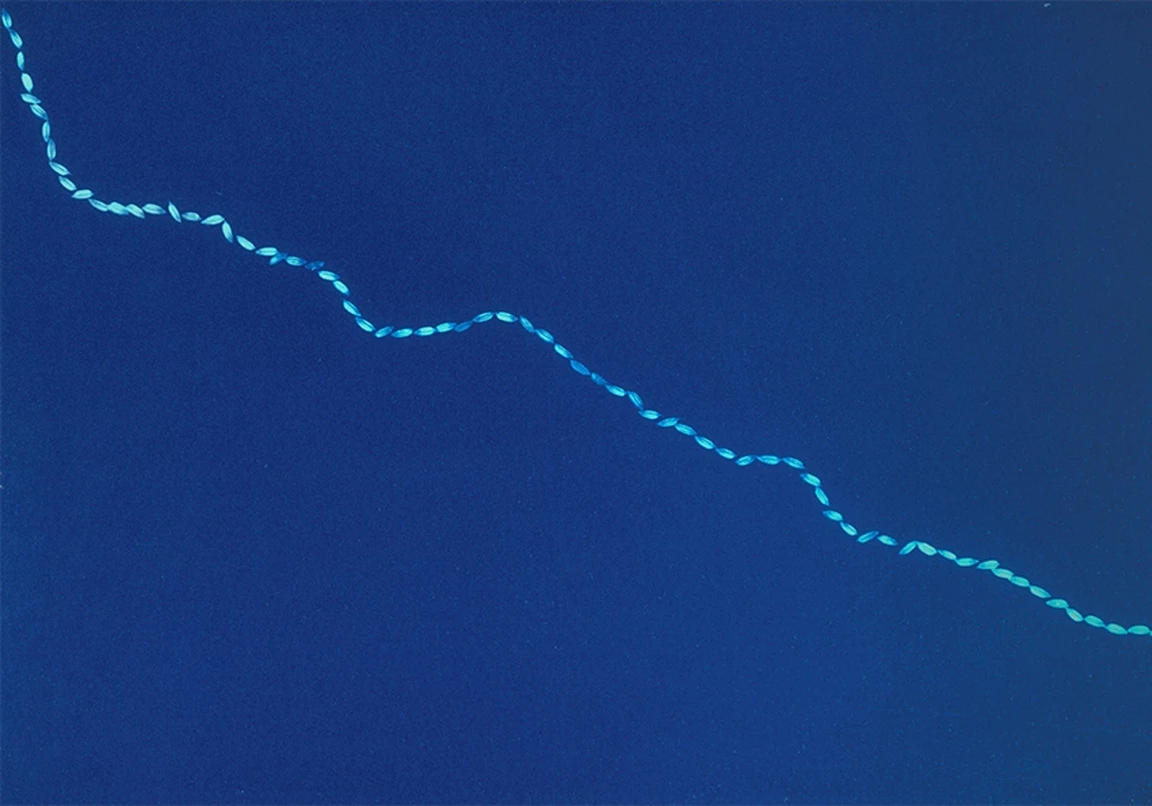
Munem Wasif, Seeds Shall Set Us Free II, detail (part of a series). Cyanotype with rice grains, 2022.
The views and opinions published here mirror the principles of academic freedom and do not necessarily reflect the views or positions of the L'Internationale confederation and its members.
Related activities
-
HDK-Valand
Climate Forum
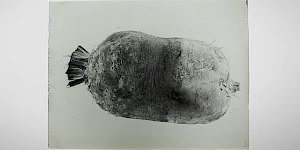
-
–Van Abbemuseum
The Soils Project
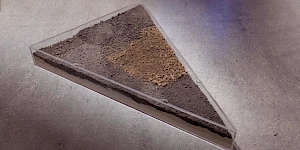
‘The Soils Project’ is part of an eponymous, long-term research initiative involving TarraWarra Museum of Art (Wurundjeri Country, Australia), the Van Abbemuseum (Eindhoven, Netherlands) and Struggles for Sovereignty, a collective based in Yogyakarta, Indonesia. It works through specific and situated practices that consider soil, as both metaphor and matter.
Seeking and facilitating opportunities to listen to diverse voices and perspectives around notions of caring for land, soil and sovereign territories, the project has been in development since 2018. An international collaboration between three organisations, and several artists, curators, writers and activists, it has manifested in various iterations over several years. The group exhibition ‘Soils’ at the Van Abbemuseum is part of Museum of the Commons. -
–tranzit.ro
Non-Western Technologies for the Good Life
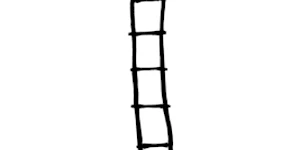
The experimental course ‘Non-Western Technologies for the Good Life’ (November 2023–May 2024) celebrates as its starting point the anniversary of 50 years since the publication of Tools for Conviviality, considering that Ivan Illich’s call is as relevant as ever.
-
–Moderna galerijaZRC SAZU
Summer School: Our Many Easts
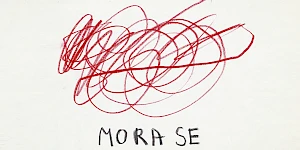
Our Many Easts summer school is organised by Moderna galerija in Ljubljana in partnership with ZRC SAZU (the Research Centre of the Slovenian Academy of Sciences and Arts) as part of the L’Internationale project Museum of the Commons.
-
–Moderna galerijaZRC SAZU
Open Call – Summer School: Our Many Easts

Our Many Easts summer school takes place in Ljubljana 24–30 August and the application deadline is 15 March. Courses will be held in English and cover topics such as the legacy of the Eastern European avant-gardes, archives as tools of emancipation, the new “non-aligned” networks, art in times of conflict and war, ecology and the environment.
-
–Institute of Radical Imagination
Gathering into the Maelstrom
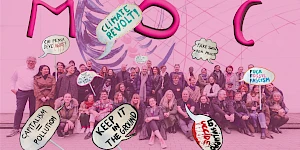
‘Gathering into the Maelstrom’ in Venice at Sale Docks is a four-day programme curated by Institute of Radical Imagination (IRI) and Sale Docks.
-
–Institute of Radical Imagination
Gathering into the Maelstrom (exhibition)
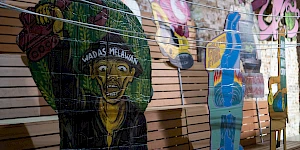
‘Gathering into the Maelstrom’ is curated by Institute of Radical Imagination and Sale Docks within the framework of Museum of the Commons.
-
–SALT
Warm Earth Sounds for Plants and the People Who Love Them
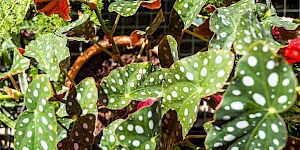
‘Warm Earth Sounds for Plants and the People Who Love Them’ is a series of sound installations by Özcan Ertek, Fulya Uçanok, Ömer Sarıgedik, Zeynep Ayşe Hatipoğlu, and Passepartout Duo, presented at Salt in Istanbul.
-
–SALT
Sound of Green
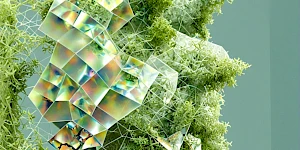
‘Warm Earth Sounds for Plants and the People Who Love Them’ at Salt in Istanbul begins on 5 June, World Environment Day, with Özcan Ertek’s installation ‘Sound of Green’.
Related contributions
-
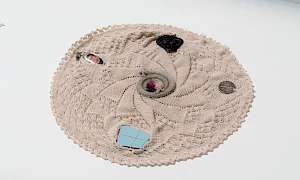
Decolonial aesthesis: weaving each other
Charles Esche, Rolando Vázquez, Teresa Cos RebolloThe Soils ProjectClimateVan Abbemuseum -
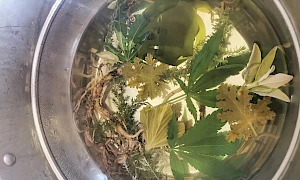
Climate Forum Readings
Nkule MabasoThe Climate ForumClimateHDK-Valand -
Editors' Picks: Cathryn Klasto
Cathryn KlastoEditors' PicksHDK-Valand -
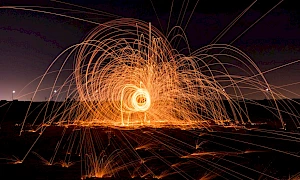
…and the Earth along. Tales about the making, remaking and unmaking of the world.
Martin Pogačar... and the Earth alongClimatePast in the Present -
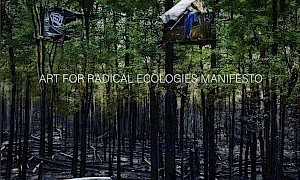
Art for Radical Ecologies Manifesto
Institute of Radical ImaginationArt for Radical Ecologies ManifestoClimateInstitute of Radical Imagination -
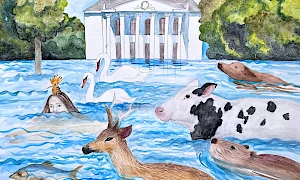
Pollution as a Weapon of War
Svitlana MatviyenkoClimate -
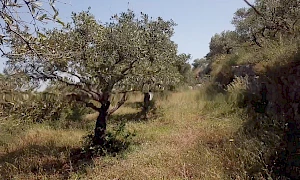
A Letter Inside a Letter: How Labor Appears and Disappears
Marwa ArsaniosThe Climate ForumClimate -
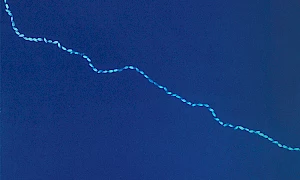
Seeds Shall Set Us Free II
Munem WasifThe Climate ForumClimate -
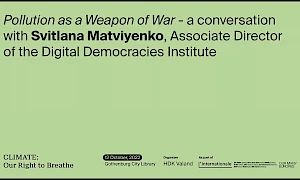
Pollution as a Weapon of War – a conversation with Svitlana Matviyenko
Svitlana MatviyenkoClimateClimate book launchHDK-Valand -
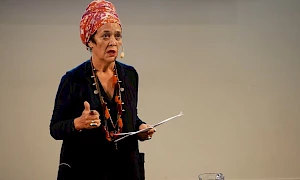
Françoise Vergès – Breathing: A Revolutionary Act
Françoise VergèsClimateClimate book launchHDK-Valand -
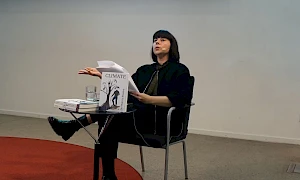
Ana Teixeira Pinto – Fire and Fuel: Energy and Chronopolitical Allegory
Ana Teixeira PintoClimateClimate book launchHDK-Valand -
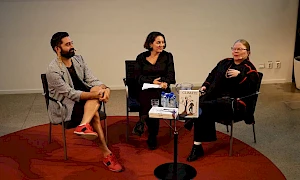
Watery Histories – a conversation between artists Katarina Pirak Sikku and Léuli Eshrāghi
Léuli Eshrāghi, Katarina Pirak SikkuClimateClimate book launchHDK-Valand -
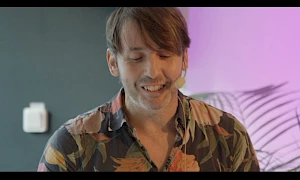
THE MUSEUM YET TO COME. Exercises of institutional imagination
Pablo MartínezHDK-ValandMACBA -
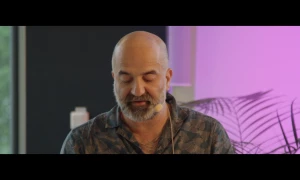
Onåbara (Unreachable)
Aleksander MotturiHDK-Valand -
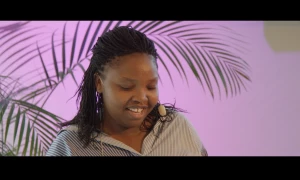
Drinking from Our Own Wells: Endarkened Feminist Epistemology as Praxis in a Persistent Economy of Lack
Nkule MabasoHDK-Valand -

Our Movements Are Loud
Bridge RadioModerna galerijaHDK-Valand -
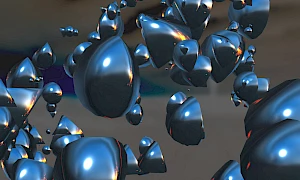
Tuning, Bias, and the Wild Beyond
Nora Akawi, Khyam AllamiModerna galerijaHDK-Valand -

Indra's Web
Vandana Singh... and the Earth alongPast in the PresentClimateZRC SAZU -
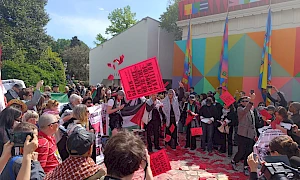
One Day, Freedom Will Be
Françoise VergèsArt for Radical Ecologies ManifestoTowards Collective Study in Times of EmergencyInstitute of Radical ImaginationClimate -
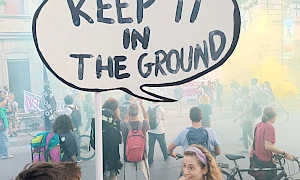
Art and Materialisms: At the intersection of New Materialisms and Operaismo
Emanuele BragaArt for Radical Ecologies ManifestoInstitute of Radical ImaginationClimate -
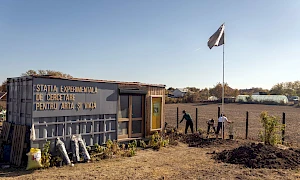
To Build an Ecological Art Institution: The Experimental Station for Research on Art and Life
Ovidiu Ţichindeleanu, Raluca VoineaArt for Radical Ecologies ManifestoClimateSituated Organizationstranzit.ro -
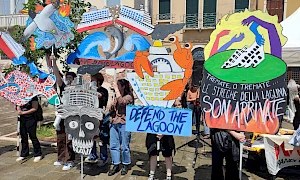
Art, Radical Ecologies and Class Composition: On the possible alliance between historical and new materialisms
Marco BaravalleArt for Radical Ecologies ManifestoInstitute of Radical ImaginationClimate -
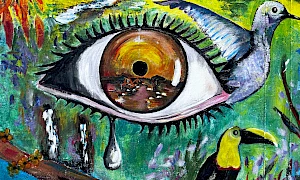
‘Territorios en resistencia’, Artistic Perspectives from Latin America
Rosa Jijón & Francesco Martone (A4C), Sofía Acosta Varea, Boloh Miranda Izquierdo, Anamaría GarzónArt for Radical Ecologies ManifestoClimateInstitute of Radical Imagination -
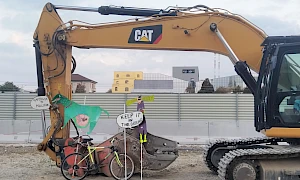
Unhinging the Dual Machine: The Politics of Radical Kinship for a Different Art Ecology
Federica TimetoArt for Radical Ecologies ManifestoInstitute of Radical ImaginationClimate -
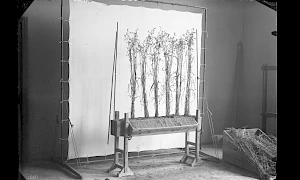
Cultivating Abundance
Åsa SonjasdotterThe Climate ForumClimatePast in the PresentHDK-Valand